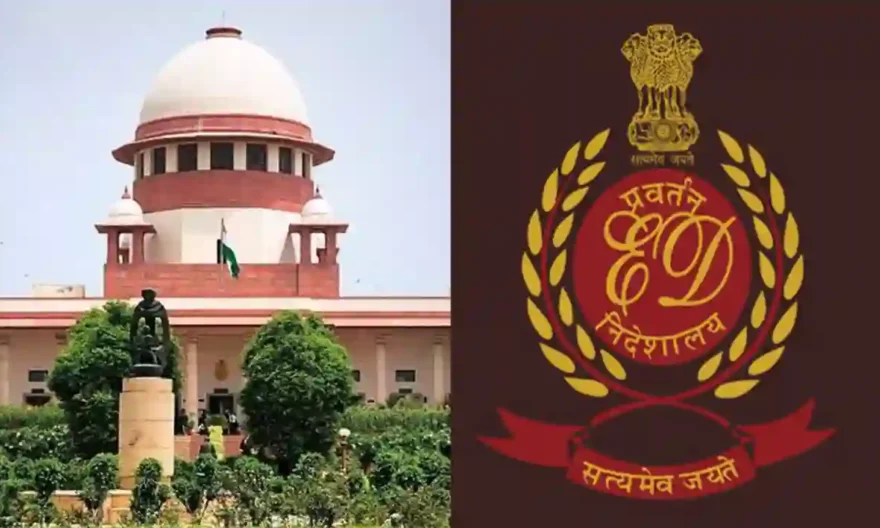
The Supreme Court on Monday questioned the Centre’s application to recall a September 2021 directive that barred the extension of the tenure of Enforcement Directorate Director Sanjay Kumar Mishra beyond November 16, 2021.
The Court told the Central Government orally that ‘subsequent legislative change cannot be used to recall or modify an earlier judgement or order.’ The Central Government is relying on subsequent amendments to the Central Vigilance Commission Act that allow the ED Director’s term to be extended for up to five years.
A division bench of Justice B.R. Gavai and Justice Vikram Nath was hearing a bunch of petitions challenging the third extension granted to ED Director SK Mishra’s term, as well as the Central Vigilance Commission (CVC) (Amendment) Act,2021.
In November 2022, the Centre filed an application to modify the order that barred the government from granting further extensions to Mishra after November 2021, citing the subsequent amendment to the CVC Act.
The central government has been embroiled in a political tussle over its decision to extend Mishra’s tenure, which began in November 2018.
According to the appointment order, he was supposed to retire two years later when he turned 60. However, the Government retroactively revised the order in November 2020, increasing his tenure from two to three years. In Common Cause v. Union of India, the Supreme Court was asked to consider the legality of this retrospective revision and extension of Mishra’s tenure by one year.
In November 2021, three days before Mishra was set to retire, the President of India issued two ordinances amending the Delhi Special Police Establishment Act of 1946 and the Central Vigilance Commission Act of 2003.
These ordinances eventually led to bills being approved by Parliament in December. Because of these changes, the tenure of both the CBI and ED Directors can now be extended by one year at a time for a total of five years from the initial appointment. Mishra was given another one-year extension in November of last year, which is now being challenged.
The recent amendment to the Central Vigilance Commission Act has also been challenged in at least eight separate PILs before the Supreme Court.
The petitioners include Congress leaders Jaya Thakur, Randeep Singh Surjewala, Trinamool Congress MP Mahua Moitra, and party spokesperson Saket Gokhale.
The ordinances were criticised for giving the Union “unfettered discretion” over the appointment and tenure of the Directors of CBI and ED. This was claimed to have compromised the independence of the investigative bodies in addition to violating the injunction issued by the top court in Common Cause.
The Center claimed in a counter-affidavit that the petitions are driven by oblique political interests because they were submitted by and on behalf of petitioners who are members of political parties whose leaders are under investigation for alleged money laundering.
According to the Central Government, the applications were filed “to ensure that the Enforcement Directorate does not and cannot fulfil its duty fearlessly.” If these organisations choose to ignore the crimes committed by the political leaders of their political party, the petitioner would be persuaded that they are independent.




